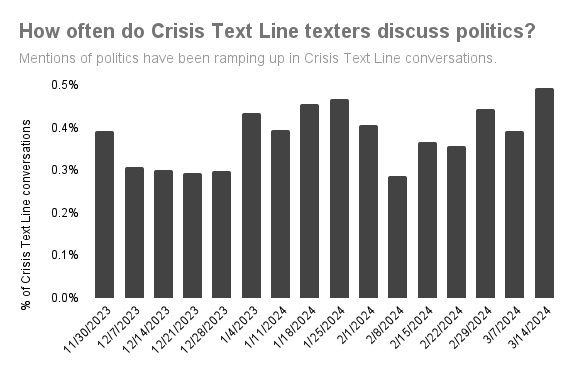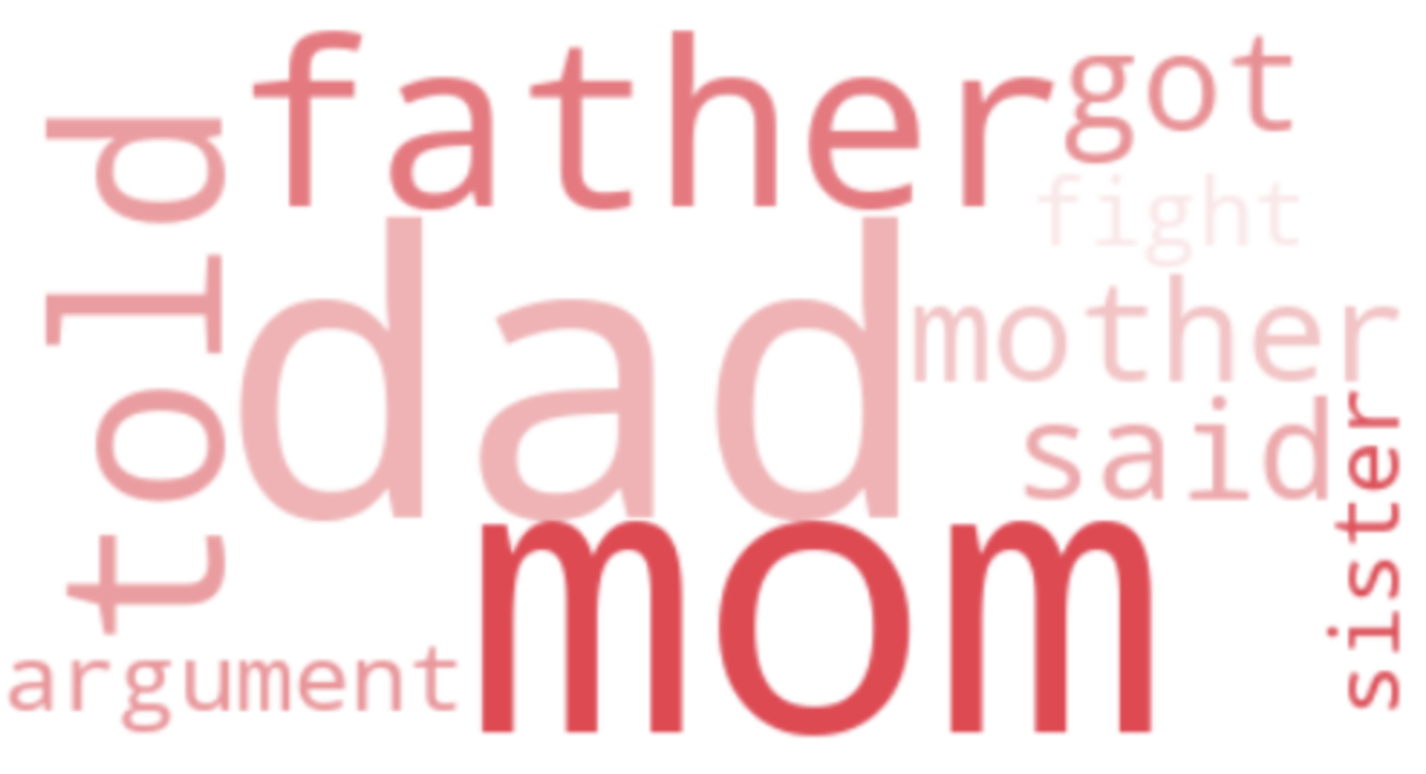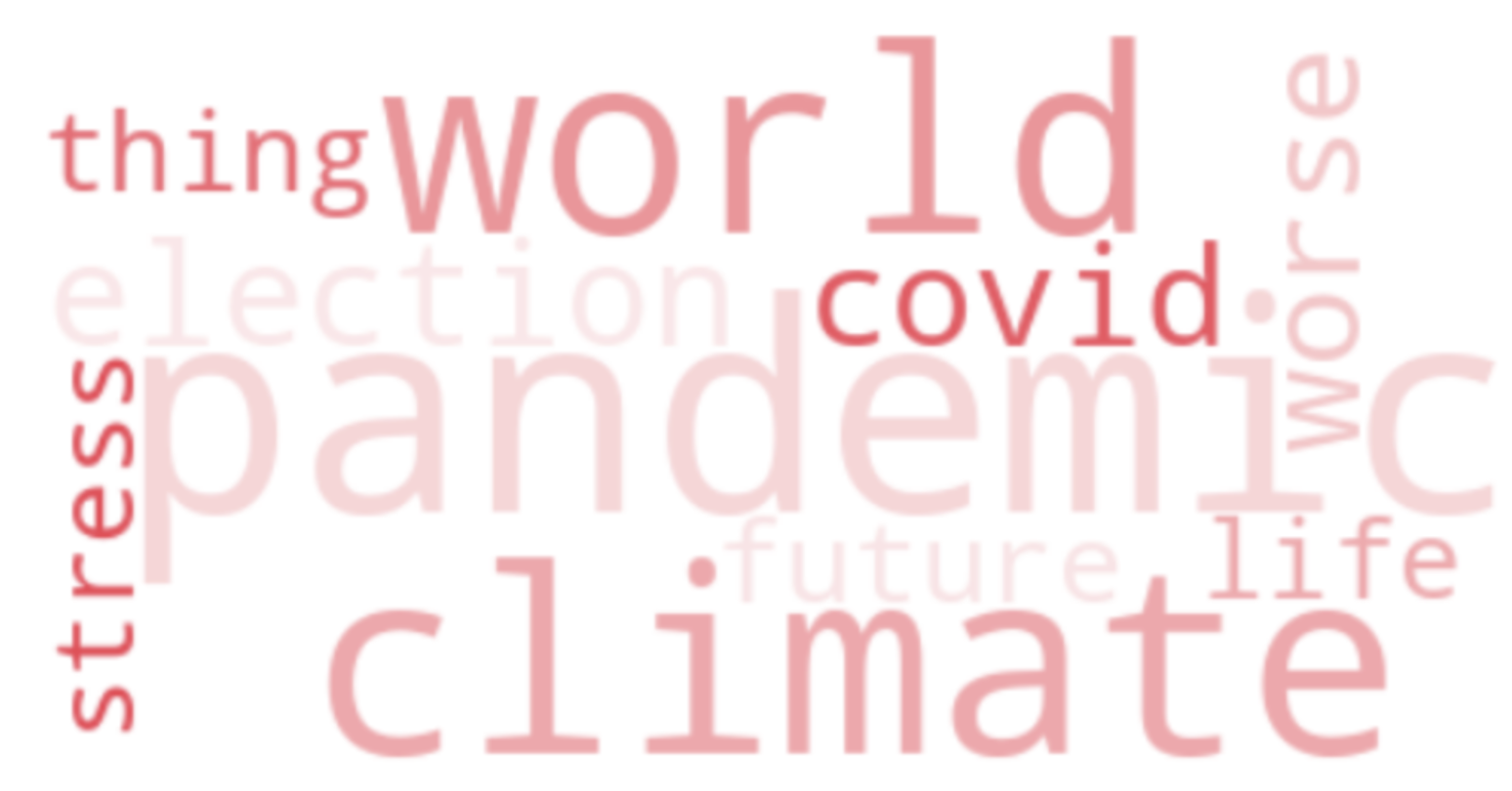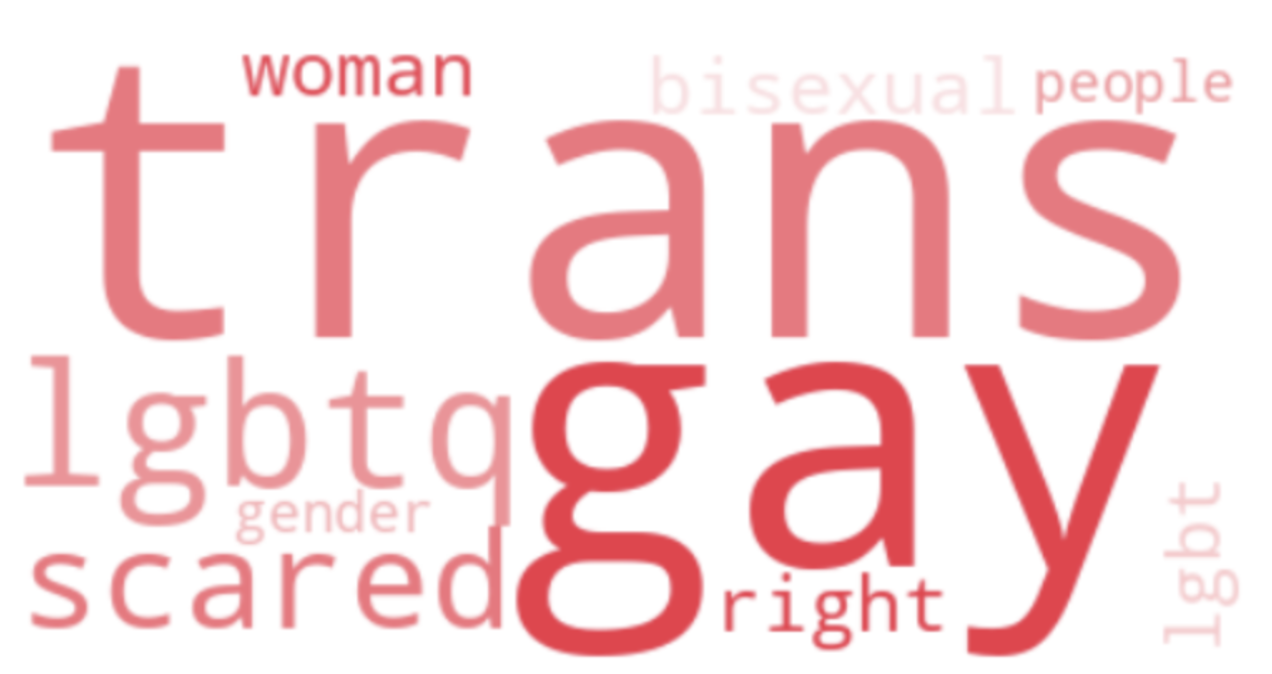Personal conflict, polarization, news anxiety, and LGBTQ+ rights appear in Crisis Text Line conversations about politics
This is Part 2 of our series on election-related insights based on our conversations with people in crisis.
We are now past Super Tuesday, with two presidential candidates, so we took another look at mentions of politics in our conversations. We used machine learning to analyze nearly 13,000 Crisis Text Line conversations from 2020 to 2024 to see how commonly politics were mentioned, and what stressors texters mentioned in the context of politics.
Here is what we learned.
1. Mentions of politics and the elections have been slowly increasing in our conversations since December.
They are still a relatively rare topic; less than 1 in 200 texters discuss it. However, mentions increased from around 0.3% of conversations in December to over 0.43% in March. This ramp-up is comparable to what we saw in the first months of the 2020 presidential election cycle.

2. When texters mention the elections, the most common topics are:
- Conflict between loved ones and polarization;
- Anxiety and stress due to the upcoming elections and the future of the country;
- A sense of overwhelm over the news and the state of the world;
- Concerns over specific rights and policies like LGBTQ+ issues and anti poverty policies.
3. Politics is frequently mentioned as a source of conflict between loved ones.
This is often in the context of polarizing issues that people argue about, such as LGBTQ+ issues, or COVID policies including mask mandates and vaccines a few years ago. Social media platforms are also often mentioned – and, of course, the presidential candidates themselves. Below are some example word clouds to show the key words inside the clusters that we identified when we looked at key stressors associated with mentions of politics.

4. Some of our texters are feeling overwhelmed by news and the state of the world.
Texters often mention reading or seeing the news as a stressor, and feeling anxious due to climate change, elections, the pandemic, international conflict or war.

5. Finally, concerns over the future of rights and policies come up in our conversations about politics.
These included LGBTQ+ issues, or anti-poverty policies and homelessness, for example worries over losing stimulus checks.

It is important to note here that based on recent research, politics are not only stressful for voters, but also for elected officials. The Brennan Center recently reported that local and state office holders are increasingly subjected to regular abuse and threats to the point where they can be afraid to legislate on certain topics. This type of abuse often takes place on social media, which is a major source of stress for office holders. As this election season ramps up, legislators and election workers should be provided with mental health resources to cope with the stress and trauma of these threats.
We will continue to share insights on elections and political anxiety for the next several months on this blog. For media requests, please reach out to Vanessa Showalter, Crisis Text Line’s Sr. Communications Director, at press@crisistextline.org.
Methodology note: We analyzed 12,701 politics-related conversations between 2020-01-01 and 2024-02-27. We used keywords to identify conversations referencing politics and elections, e.g., ‘election’, ‘trump’, ‘biden’, ‘democrat’, ‘republican’, ‘vote’, ‘elect’, ‘primaries’, ‘politics’, ‘politician’. We used VADER to identify text with negative emotional valence, and BERTopic to identify thematic clusters among conversations mentioning politics. Please note that Crisis Text Line texters are not representative of the U.S. population. For more information on methodology, please email Lili Török, Crisis Text Line’s Principal Research Scientist, at ltorok@crisistextline.org
